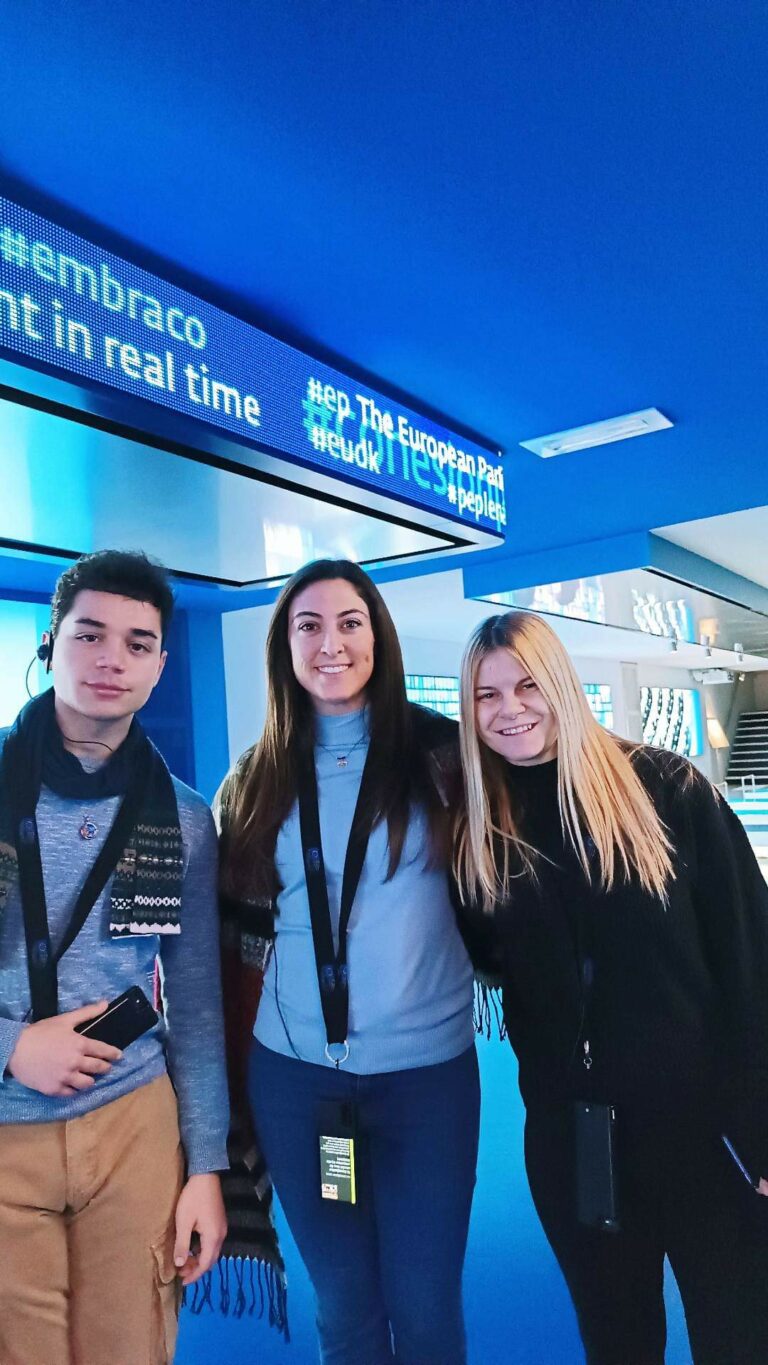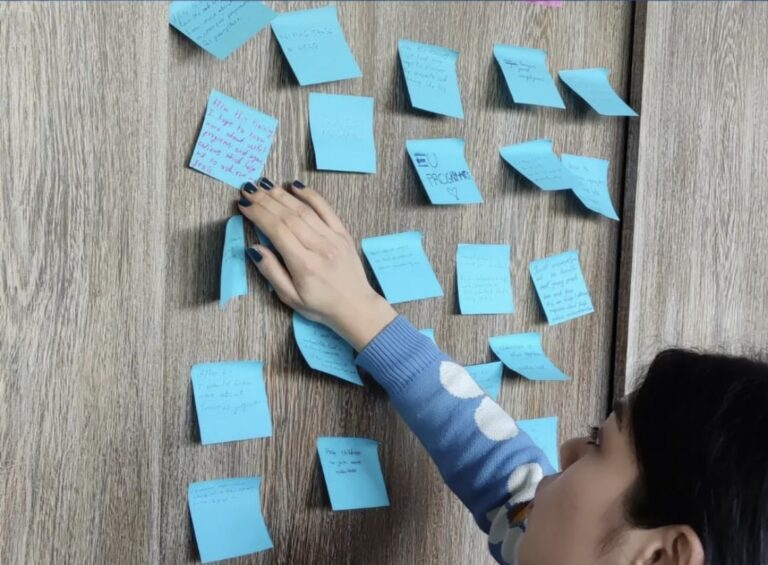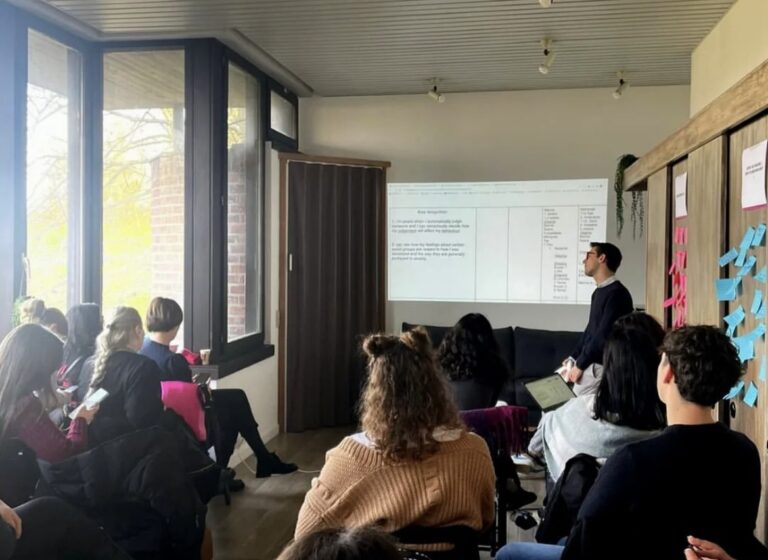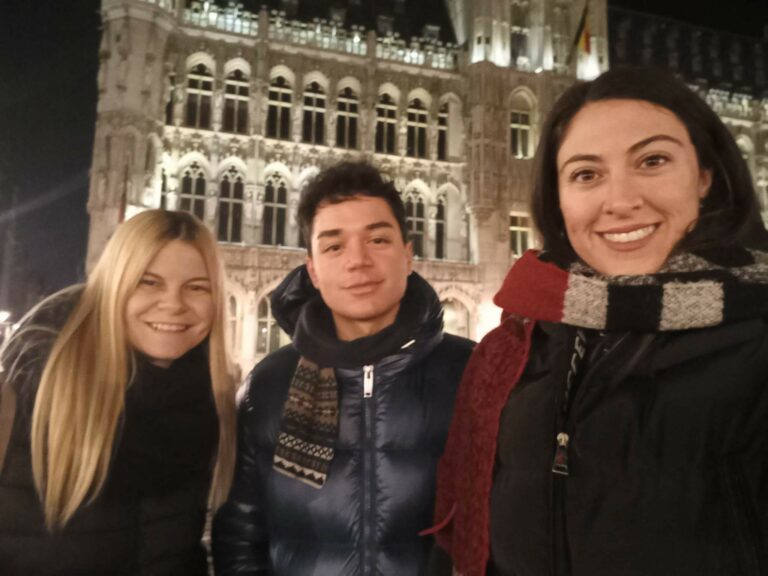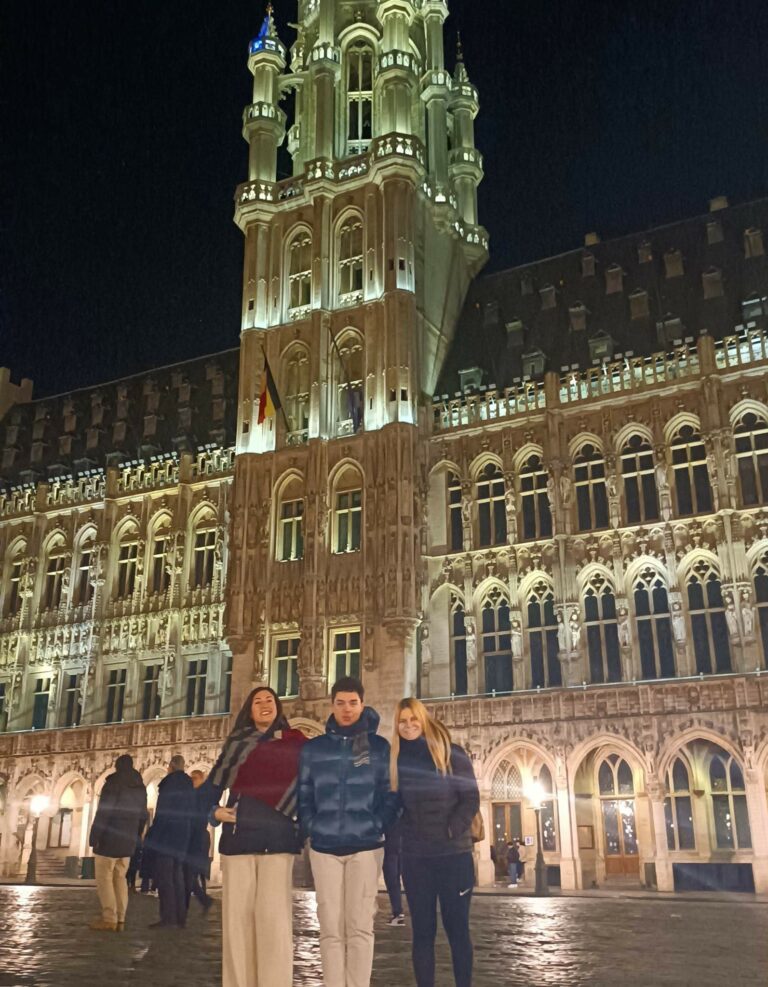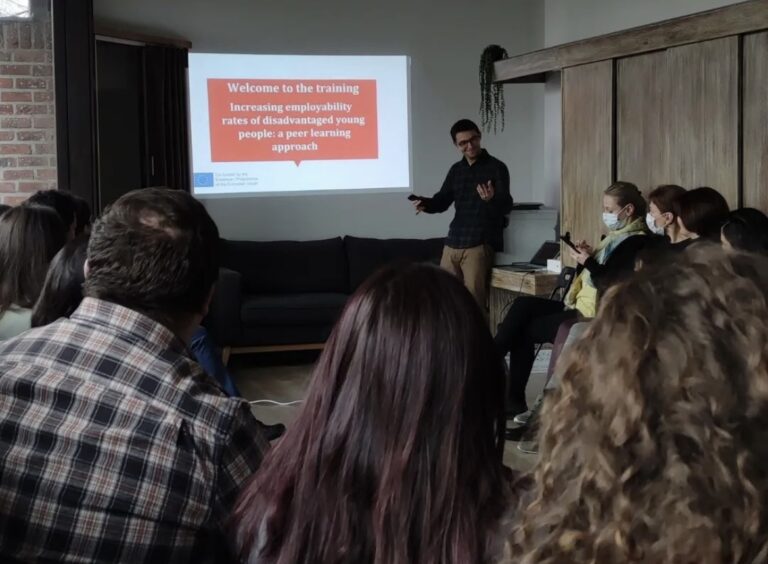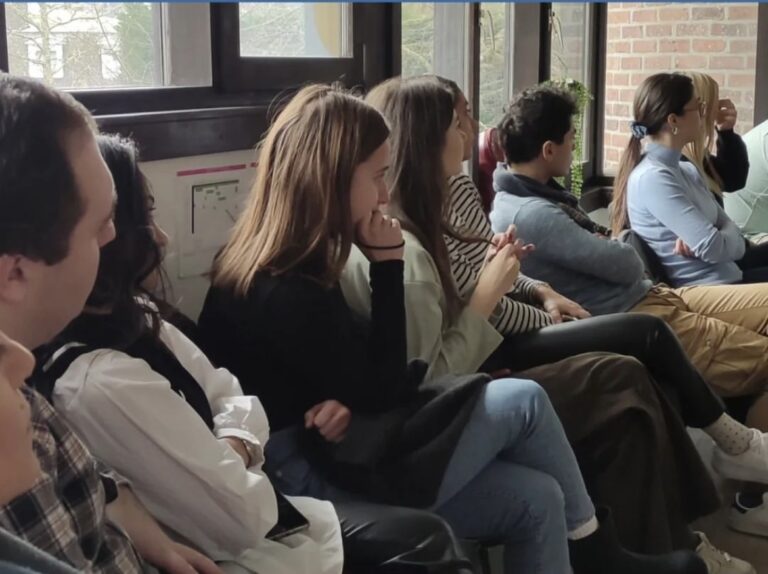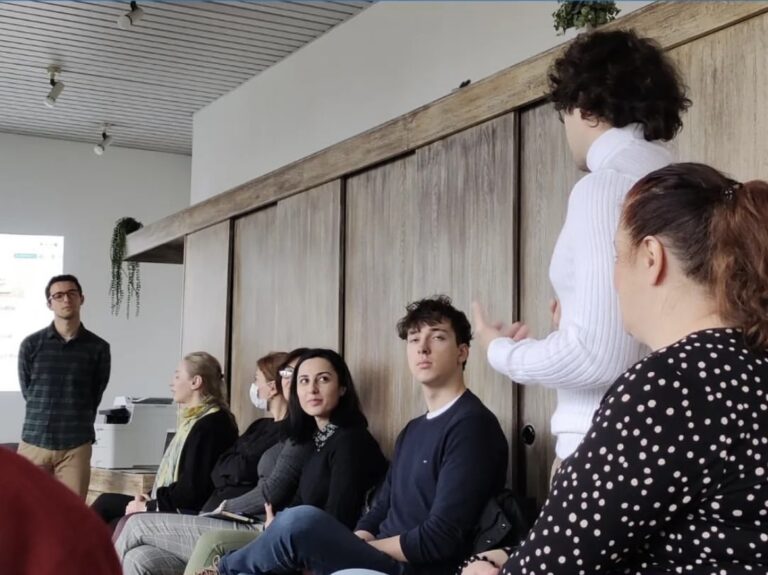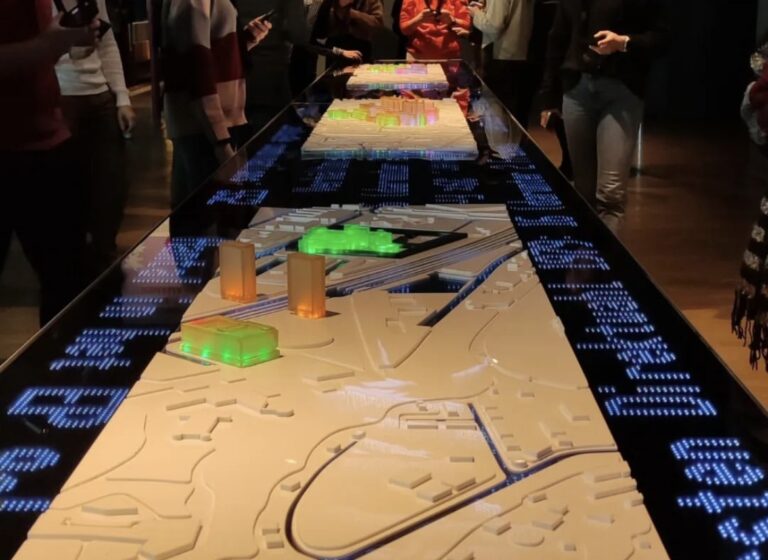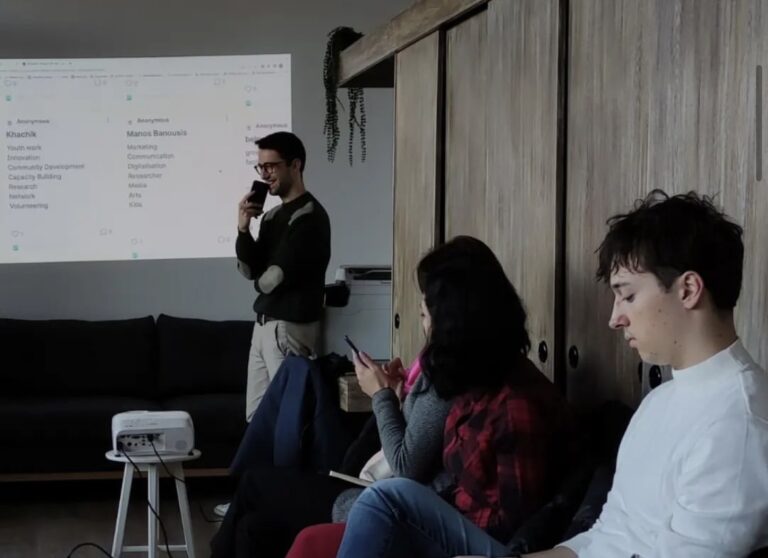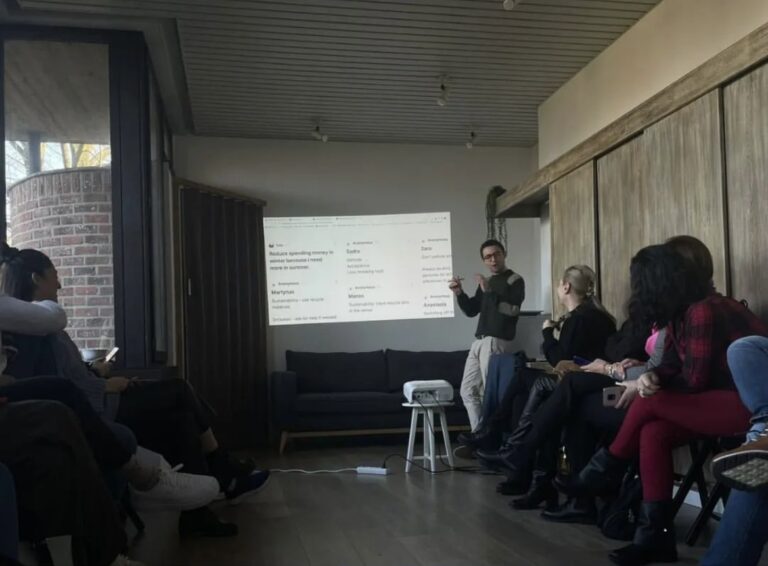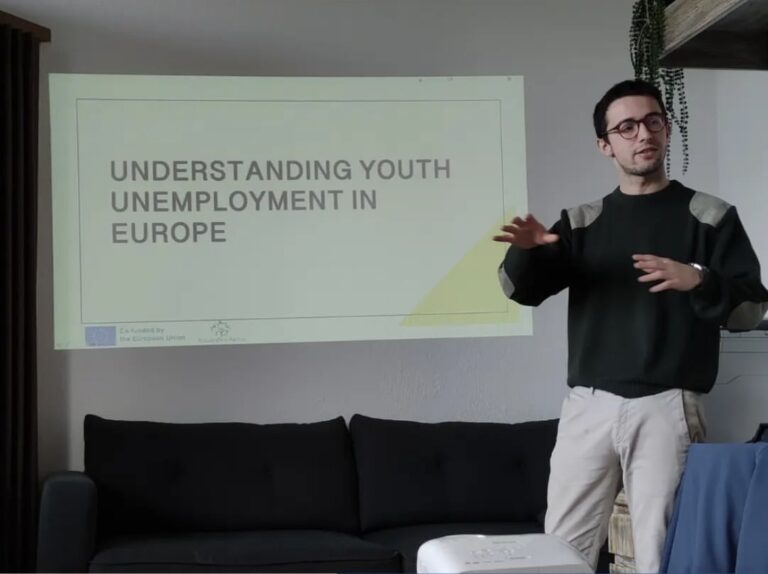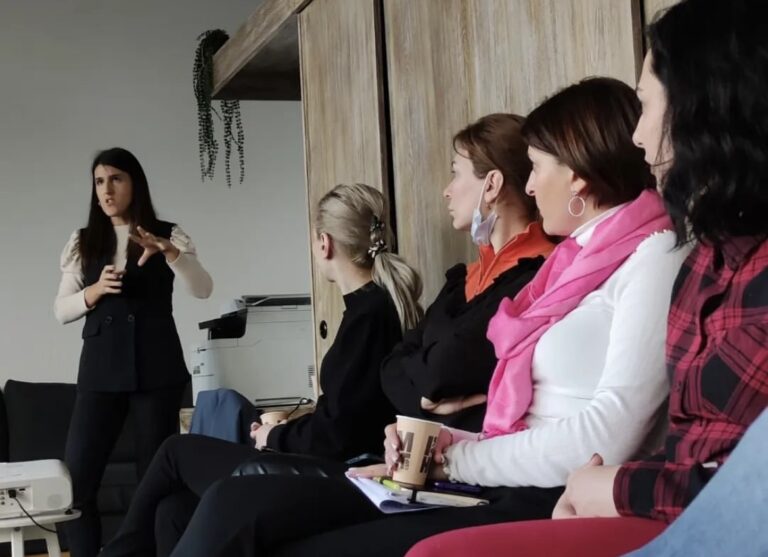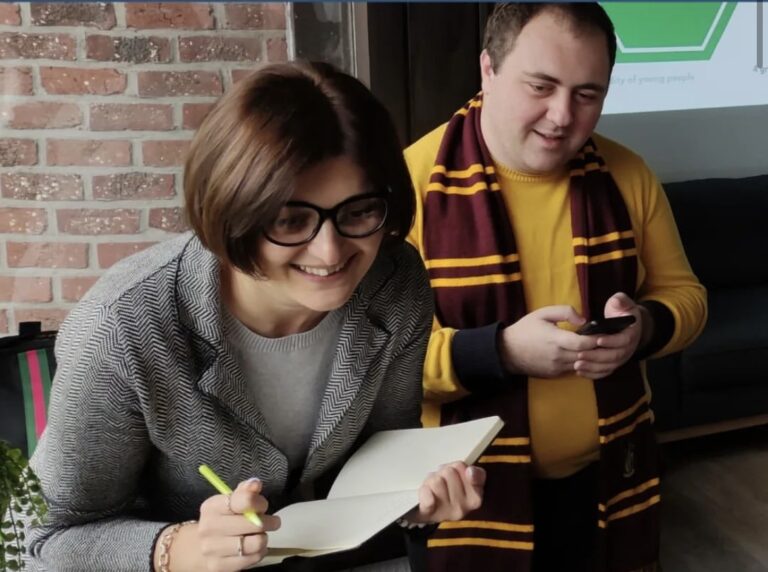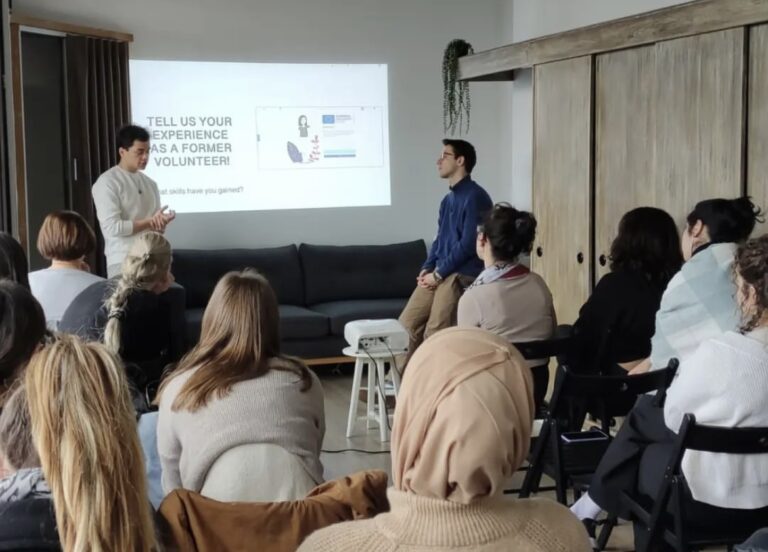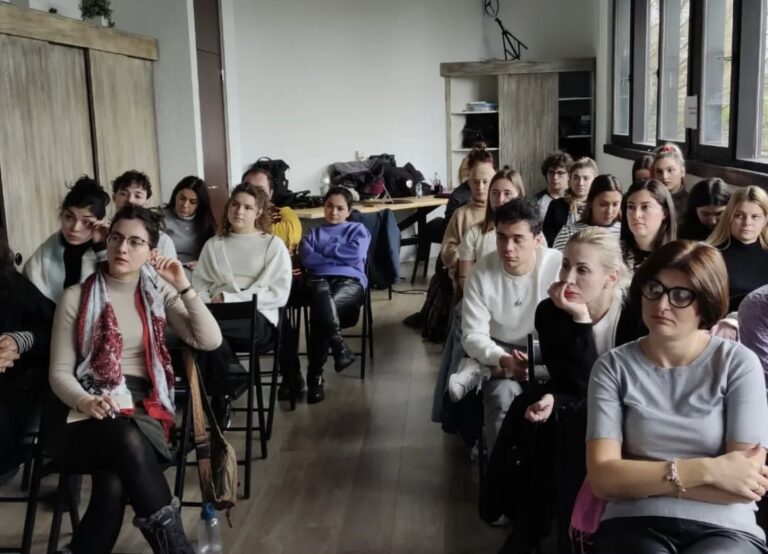
Increasing employability rates of disadvantaged young people: a peer learning approach!
Erasmus+ Training Course: 28th January – 2nd February 2023, Brussels Belgium

EKO is happy to announce that one more awesome training course has been successfully completed. The project took place in Brussels, Belgium. In this project 29 youth workers from different countries gathered to learn about employability rates of disadvantaged young people: a peer learning approach. The project was implemented from 28th of January till 2nd of February 2023 by the host organization YouthProAktiv and participants from 9 more countries including: Belgium, Greece, Georgia, North Macedonia, Lithuania, Slovenia and Serbia, Armenia and Turkey. The training based on non-formal education activities was planned in order to meet the needs faced by youth workers through youth work entrepreneurial experience and digital technological field.
The main objectives of the project:
- – Improving the capacity of youth work and youth workers to successfully reach, train and help disadvantaged youngsters to get into the labor market in the post-Covid recovery period.
- – Helping increase disadvantaged youngster’s employability rates through non-formal education initiatives fostering their inclusion into the labor market.
Also, the project aimed to raise the awareness on the current youth unemployment outlook in Europe, understand the unemployment rates of disadvantaged youth groups, finding solutions and enable youth workers to identify youth groups specially marginalized with regards to access to the labour market, promoting the inclusion and improving skills as well.
ACTIVITIES DURING THE PROJECT
On the first day, our training facilitator, Francesco Tognoni, presented and introduced the project and its objectives, and facilitated non-formal activities enhancing teamwork and collaboration. Afterwards, Daniel Wisniewski, an European Policy Expert enlightened participants on EU Strategy and Policies to address the employability of young people. He provided them with knowledge, tools, recommendations and resources on the European Youth Guarantee, the Erasmus+ programme, the Youth Employment Initiative and ESF+, among others.
The sessions ended with a visit to the Parlamentarium, where participants discovered the functioning of the European Parliament through multimedia guides that explained the path towards European cooperation, how the European Parliament works and what its Members do.
Youth workers started the second day’s morning by sharing their working life summarized in seven words. Francesco Tognoni facilitated this ice-breaker activity to enable participants learning more about each other’s experiences and work. Responses were shared through the digital tool Padlet, that allowed us to work cooperatively and clearly. To increase participants commitment to inclusion and sustainability there were suggested to share a written personal commitment on sustainability, inclusion and diversity to meet the expectations of the training and make it more enjoyable.
After this, the definition, characteristics and prospects of youth unemployment among young people in Europe were explained, addressing the main concepts and issues. Also, the unemployment rates between the EU and neighboring countries were compared, and the causes of the different rates were analyzed. Complementary, our training facilitator, Marina Angerri focused on unemployment rates among disadvantaged youth groups and participants analysed the possible solutions that could improve these rates previously presented.
In the afternoon, three peer learning activities were carried out:
- – Partner organizations presented and shared their entrepreneurial experiences related with the foundation of their organization.
- – The CEO of YPA explained the history of YouthProAktiv and its initiative to fight for youth employability.
- – Participants took part in the skill mismatch activity to enhance their technological and digital skills.
Following the programme, the third day started actively. Our facilitator, Berta Tirvió conducted a session which helped participants getting to know each other’s language, brought the youth workers feel closer and to learn words related to youth employability in the different languages. Thereafter, youth workers shared their knowledge about the existing volunteering programmes by Padlet, the platform that allowed us working in a sustainable, cooperative and interactive way.
Participants continued learning about the volunteer programmes through our session, volunteering as a way to improve the integration of young people with fewer opportunities, to” and also to the experiences shared by some of the attendees who had participated in a volunteer program.
Following this, a “World Café” activity was organized to discuss an exchange ideas on how each one could integrate the EU Youth Employment Mechanisms in their work with young people.
Subsequently, participants took part in the second peer learning activity on skills mismatch, where they presented their preparatory activities and discussed ways to boost entrepreneurial skills and improve the current youth employability.
After lunch, another “World Cafe” activity allowed participants to talk, debate and discuss about how the industry, education, business and arts sectors will need to adapt their workplaces from now on as a consequence of the evolution and digital transformation. In addition, participants brainstormed on how non-formal education prepare young people for future jobs an then, they made a peer learning activity where presented their best practices and projects for disadvantaged youths and their employability.
To finish the day’s sessions, attendees participated in a “Public Debate”, to discuss about some strategies and practices that could improve the employment chances of disadvantaged youths. This was followed by a self-reflection and evaluation activity to become aware of the learning process and to assess the knowledge, skills and attitudes gained by participants.
Fourth day started with the presentation of the Erasmus+ co-funded Jovid19 project, its website, tutorials, Mobile App and also the policy recommendations to better increase the attendees awareness on how it really works and how it can be helpful.
Participants then, listened to the session on inclusivity and diversity and also answered two Self-Assessment tests that enabled them to reflect, debate and share our views on the subject. Afterwards, with the holding of a “walking debate“, attendees took positions for or against certain sensitive issues on youth employability. Then the exercise: Navigating into Salto Youth, enabled us to learn how to use digital technologies to collaborate with other youth workers, how to share knowledge and experiences and how to better use innovative non-formal pedagogical practices through digital and technological means.
So as to develop an Action Plan, attendees were grouped according to each organization , they worked in a project where they could apply the knowledge and skills acquired during the training.
Finally, during our training last day, participants carried out an evaluation where they could talk about the learnings and usefulness of training and then they also attended in an intercultural activity that brought the participants together and helped them to increase their networks. Aafter doing the Final Self & Peer evaluation of the experience and assessing the training work methodologies, as well as having the YouthPass Ceremony at the end of the training, all participants returned to their respective countries to work in their organizations and implement the knowledge and good practices learned during these last days.
END of the project
The project was an unforgettable experience that enabled Greek participants to develop themselves, both individually and collectively and helped them to establish themselves as active participants in public life. Antonia, Manos and Anastasia were the members of the Greek team whom we really wanna thank for all their contribution and collaboration throughout the project!
As EKO, we are also very grateful for that amazing opportunity given to the Greek team and we thank our partner Paloma Cantero, as well as Francesco Tognoni and Marina de Angelis (the rest members of the hosting organization YouthProActiv), for all their hard work and for creating such an impactful project!
